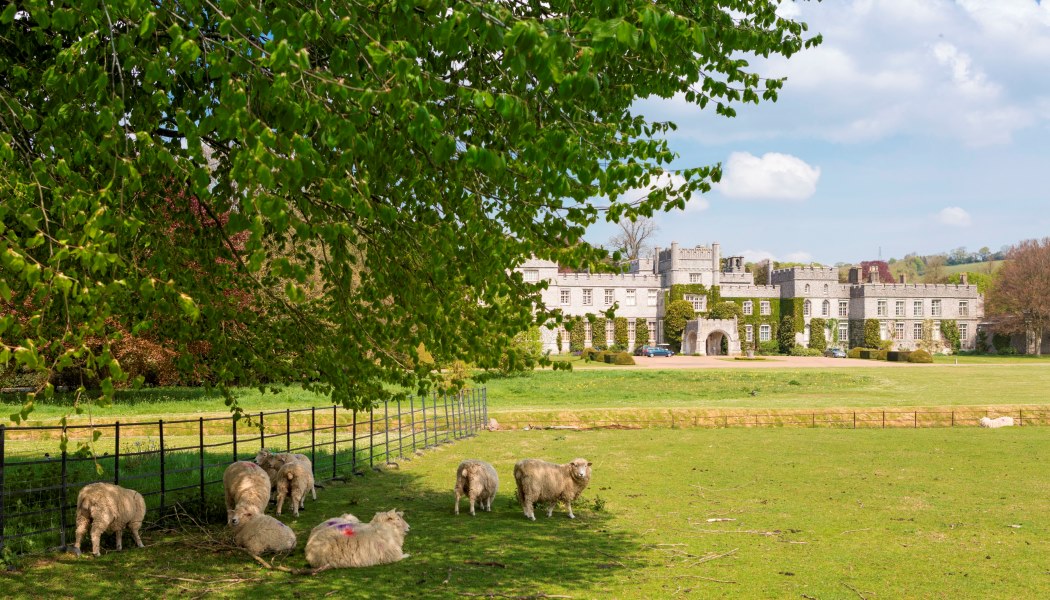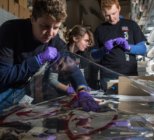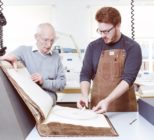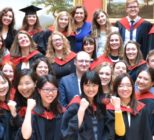In 1939 poet and lifetime art collector Edward James wrote to his friend Aldous Huxley of his plans to turn his West Dean estate into a college to preserve certain arts and crafts he thought would suffer as a consequence of the Second World War.
I want to establish an educational foundation where creative talents can be discovered and developed, and where one can spread culture through the teaching of crafts and the preservation of knowledge that might otherwise be destroyed or forgotten
In 1971 James’s West Dean Collage was opened as centre for education and training in conservation and in the visual and applied arts with the first full-time programme launched the following year in furniture making and conservation. A decade before James established the Edward James Foundation, a charitable educational trust, to fulfil his desire to nurture music, traditional crafts and the visual arts.
Today there are a number of fine art courses and those that specialise in conservation such as the full-time MA Conservation Studies and the new MA Collections Care and Conservation Management, which is a part-time programme of modular study that enables those working or volunteering in the sector to gain their Master’s degree alongside their work.
A distinct and rare advantage is students’ opportunity to study conservation in a Grade II* Listed historic house environment with access to the College’s Working Collection.
“As a historic house containing objects, art and archives, West Dean is an example of a real collection in need of care and conservation. Students work in conjunction with the housekeeping staff using modern data logging technology to monitor conditions in the collection, and there is a laboratory providing a range of scientific analytical techniques to identify the materials of objects,” says David Dorning, MA, ACR, Head of School of Conservation, West Dean College.
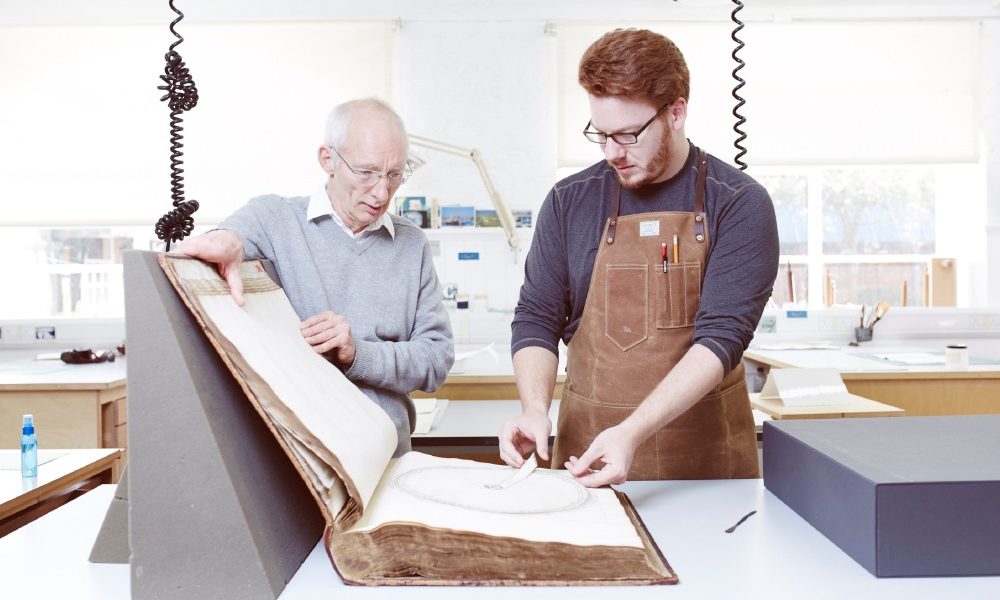
Dorning, who is a book and paper conservation specialist, an accredited member of Icon (the Institute of Conservation) and a Fellow of the IIC (the International Institute for Conservation), says students also maintain, and where necessary, carry out work on items from the collection. The college has discipline-specific workshops, which are equipped to undertake a broad range of conservation treatments: often a mix of modern science based processes combined with the application or adaptation of traditional making techniques.
“There is often overlap between workshops where objects comprise multiple materials, for instance wooden furniture with metal handles and glass mirrors. Students learn how to combine the traditional craft skills used to make objects, which can be vital to their further treatment, with modern analytical and scientific processes used to understand their condition and to slow down their continued degradation.”
At the College students are taught that part of the role of the conservator is to work alongside other informed stakeholders such as curators, librarians, trustees and owners of historic objects to identify optimum strategies for the treatment of objects. “This attitude is embedded in teaching at West Dean College, and reflects the professional norms of the heritage sector,” he says. “Along with specific object-related skills, this equips West Dean graduates to enter the heritage sector as well-prepared professionals.”
The main aim of the School of Conservation is to provide education and dedicated training for people intending to enter the heritage profession, continuing professional development for those already in it, and to develop excellence in related traditional craft skills.
Students on full-time courses spend around 70 – 75 per cent of their time learning practical skills for the treatment of damaged or degraded historic material, through working on real objects brought to the college for treatment. The courses also involve scientific, technical and contextual study related to the objects, their materials and their historical context. Students can specialise in books, ceramics, clocks, furniture and metal; and given the nature of historic objects there is often overlap between these disciplines. The Collections Care and Conservation Management MA course runs for two years part-time, with block teaching interspersed with direct experience of the care and management of historic collections.
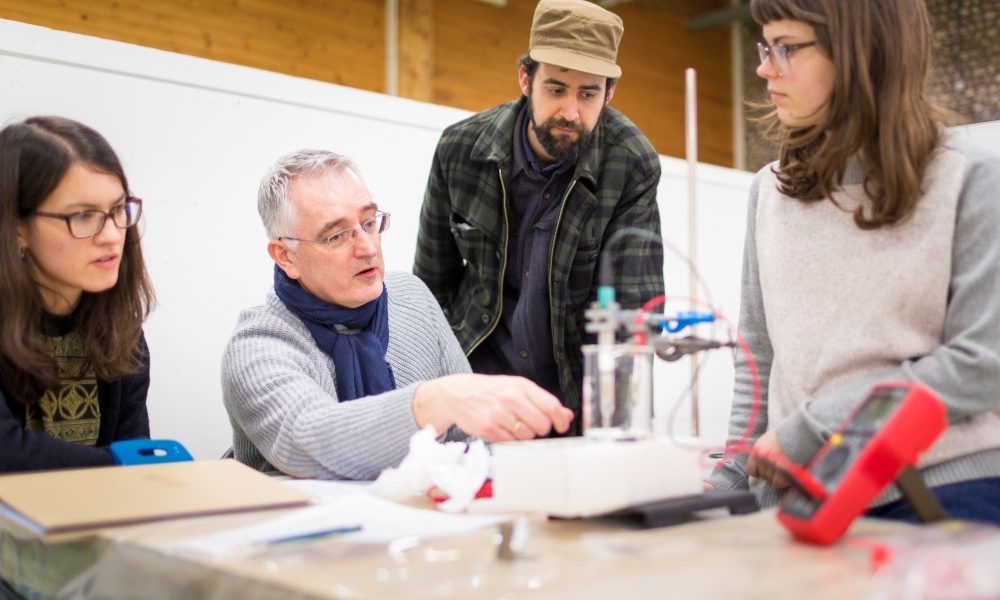
The College also has long-standing relationships with museums and heritage organisations in the UK and internationally, which means its students have felicitous placement opportunities at renowned museums and with collections of international significance.
Student placements in 2017 (January to February) include the V&A, British Museum, Imperial War Museum, Brighton Pavilion and international placements such as Yale University Library, Amsterdam City Archives and more.
“Through visiting museums and historic houses students are able to see and handle historic items in context, and understand the circumstances of their use, display and storage. This helps them to become much better informed and prepared to assess and discuss their conservation needs,” says Dorning.
In collaboration with the British Library, West Dean delivers a programme of courses in preservation and collection care for libraries, aimed at sector professionals and conservators. Other benefits of these relationships include study visits, such as Arundel Castle and The Foundling Museum and from visiting lecturers from institutions such as the British Museum.
The College’s alumni have gone on to work in many of these prestigious heritage organisations such as Shayne Rivers, MA (FIIC) and a West Dean alumni (1991) who is a world-renowned expert in the conservation of furniture and Asian lacquer. Formerly Senior Conservator for 16 years at the Victoria & Albert Museum Shayne is now Subject Leader on the college’s MA Collections Care and Conservation Management programme. In her own time Rivers has undertaken the role of mentor to young students and conservators that has enabled them to fulfil their potential and go on to become leading conservators in the field.
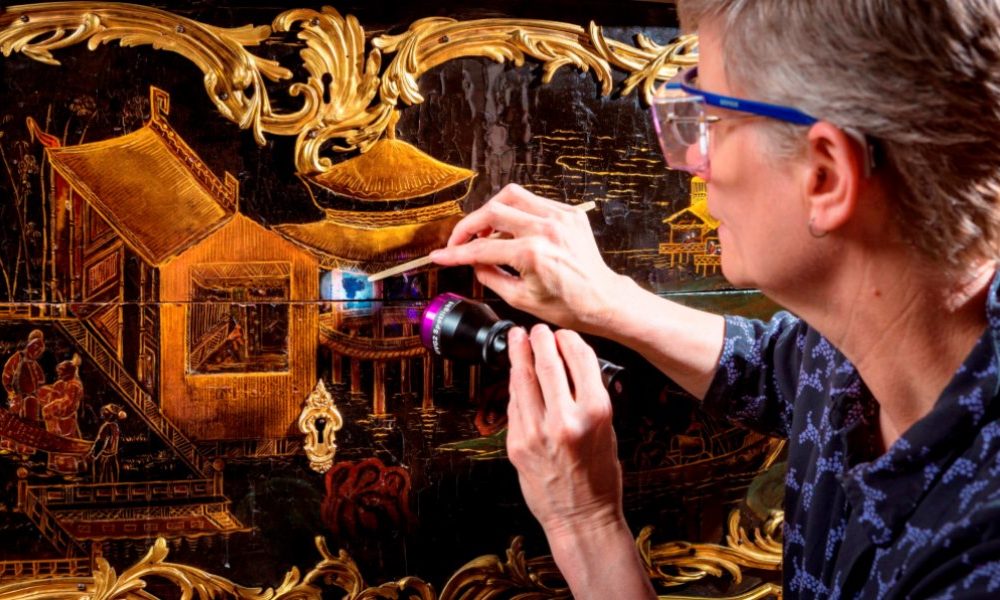
She says the criteria museums and heritage attractions are looking for in conservation graduates are:
- Conservation skills – practical experience combined with sound theoretical understanding
- The ability to understand and respond to organisational priorities
- Interpersonal skills – for example working within cross-disciplinary teams that often contain passionate individuals with different objectives, so the ability to understand overall aims, prioritise them and communicate is key
“Emerging professionals need skills in place that allow them to develop – confidence in approaching practical projects, combined with a sound theoretical grounding that forms the basis of future problem solving,” she says. “There is an ongoing tension between the need for generalists and specialists. Discussion with sector leaders suggests that professional knowledge and skills form the basis of every conservation-related appointment, but willingness to be flexible, develop and adapt to changing priorities and demands is key to an individual’s ongoing success in the discipline.”
All conservation courses at West Dean combine theory and practice, equipping students to be able to meet a range of conservation challenges. Using its extensive professional networks, says Rivers, in both the public and private sectors, the College ensures students are exposed to current thinking and priorities. “All our courses challenge and extend our students knowledge and experience, preparing them for the next stage in their development as professional conservators.”
As an inclusive college West Dean is committed to widening access and increasing participation in education in the creative and applied arts in accordance with the original charitable purpose of the college as defined by its founder James. Students come from diverse geographical locations, with approximately 40 per cent of conservation students being non-UK residents.
“The College actively seeks to recruit students from a range of non-traditional backgrounds into its higher education provision and is committed to developing strategies to support this,” says Dorning.
There are several sources of funding open to talented students who otherwise would not be able to afford to study at West Dean including funds from the Edward James Foundation. There are bursaries offered for some higher education students and also for some foundation and short course students to support wider access. The College works with a number of partner organisations to offer a range of scholarships based on aptitude to ensure that students with potential are able to develop to a professional level in its very specialist subject areas. Currently a third of all tuition fees are met through bursary or scholarship funding and 16-17 (approximately 60 per cent of students) are in receipt of some support.
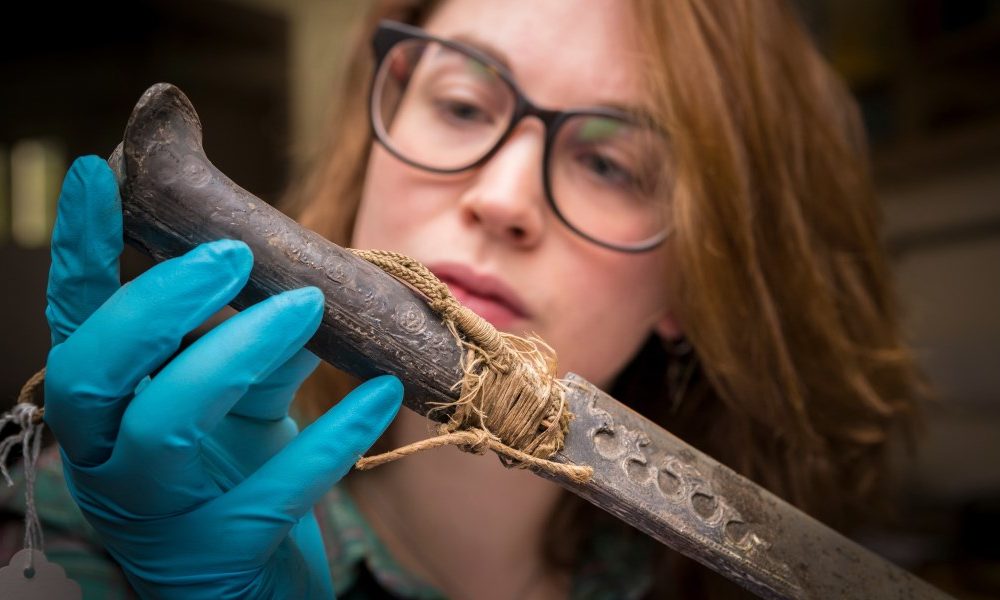
Francesca Levey, is a good example of students applying and receiving bursaries as well as working and saving up for their courses. She is in her final year of an MA in Conservation, specialising in metalwork.
“The summer before I arrived at West Dean I juggled six jobs to pay for my tuition fees and have used all my savings,” she says. “I also wrote to every funding organisation I could find and have been very lucky. I was awarded The Edward James Foundation Bursary, the Anna Plowden Trust Bursary, the Worshipful Company of Art Scholars Prize and the Sidney Sanders Prize.” In her second year, she received a number of scholarships and a bursary from the York Consortium for Conservation and Craftsmanship. “Without the generosity of these funding bodies I would not have been able to complete the MA.”
During the final year of her BA in Art History at the Courtauld Institute of Art, specialising in Mughal miniature paintings, and specifically the arms and armour depicted in them, Levey interned at the Wallace Collection. On graduating she was offered a position as a research assistant, on the Ottoman, Middle Eastern and Asian arms and armour cataloguing project, an area of the collection that has been neglected for a century. She continues to work on the project as a research associate and contributing author.
“I would like to be able to retain my focus on arms and armour, and South Asian works of art. There are several important collections containing this material in the UK and Europe and I have learned so much from the objects I have been lucky enough to work with so far I would love to have the opportunity to work with more,” she says. “I came from an academic background with no practical experience and West Dean has helped me to start developing my hand skills and my understanding of how objects work and are made. The emphasis on building good hand skills and having a practical understanding of your specialist material was my main reason for choosing West Dean’s MA programme.
Levey says the reality of conservation is that the training is expensive, the salaries are low and the jobs are scarce. However, she points out that there are lots of places to apply for funding and the generosity and support of these charities makes the first step possible for many people.
“If you are thinking about pursuing a career in conservation I would advise talking to people and asking questions,” she says. “Be enthusiastic and do your research. I have been privileged to work with conservators who are exceptionally generous with their time and knowledge. I think most of the people I have met in conservation love what they do and are delighted to talk things through and offer guidance, but be sure to do your research first.”
The deadline for degree and diploma courses at West Dean College is 1 March and for bursaries and scholarships 1 April.
In Focus
This case study is part of an In Focus feature on Workforce Development

